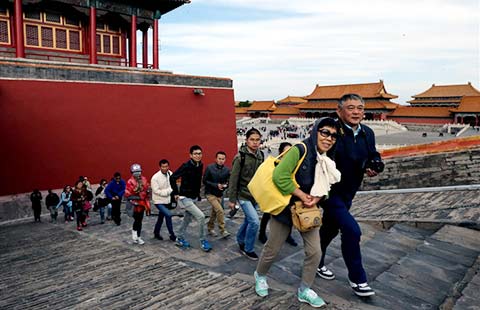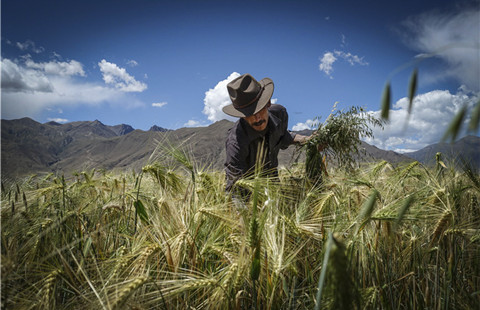

Developing nations now have more choices for procuring loans
Emerging countries can now look to China and other new economic powers for development cash, said a leading African politician.
"The rise of BRICS countries like China, Brazil and India gives an alternative to African and other developing countries for much needed investment without having to go through the old rigmarole," said John Dramani Mahama, vice-president of Ghana.
Mahama said the Cold War and US influence in Africa almost compelled countries in the region to seek resources for development from the International Monetary Fund and the World Bank.
Ghana's vice-president was speaking ahead of his visit to Beijing on Thursday to sign a $3-billion loan from the China Development Bank.
Considered the largest loan so far to a West African nation, the money is earmarked for major infrastructure development, including a new gas pipeline, fishing harbors, roads and railway lines.
Mahama, speaking from his official residence at Osu Castle in Accra overlooking the Gulf of Guinea, added Ghana was also in discussions with Brazil to arrange a similar but smaller facility of around $1 billion.
The loan by the China Development Bank, China's largest foreign currency lender, has been subject to significant delays.
It needed third-party approval from the IMF because of Ghana's poor financial status, which means any additional lending has to be scrutinized to avoid it getting into further debt.
The IMF eventually gave the go-ahead in December and Ghana's parliament approved it in February.
Gong Jianzhong, China's ambassador to Ghana, said he could not understand the delays.
The memorandum of understanding was signed during the visit of Ghanaian President John Atta Mills to China in September 2010.
"I have no idea why this loan has been blocked for more than a year. Ghana is at a crucial stage of its development — like China was 30 years ago — and needs help from outside to develop its infrastructure," said Gong.
The new loan has been criticized on the grounds that Chinese companies will be key beneficiaries from the infrastructure work.
Mahama insists, however, there are provisions for Ghanaian and other companies to get 40 percent of the contracts.
"It is not like China is giving us $3 billion with one hand and with the other coming back and taking all the contracts and their money back," he said.







